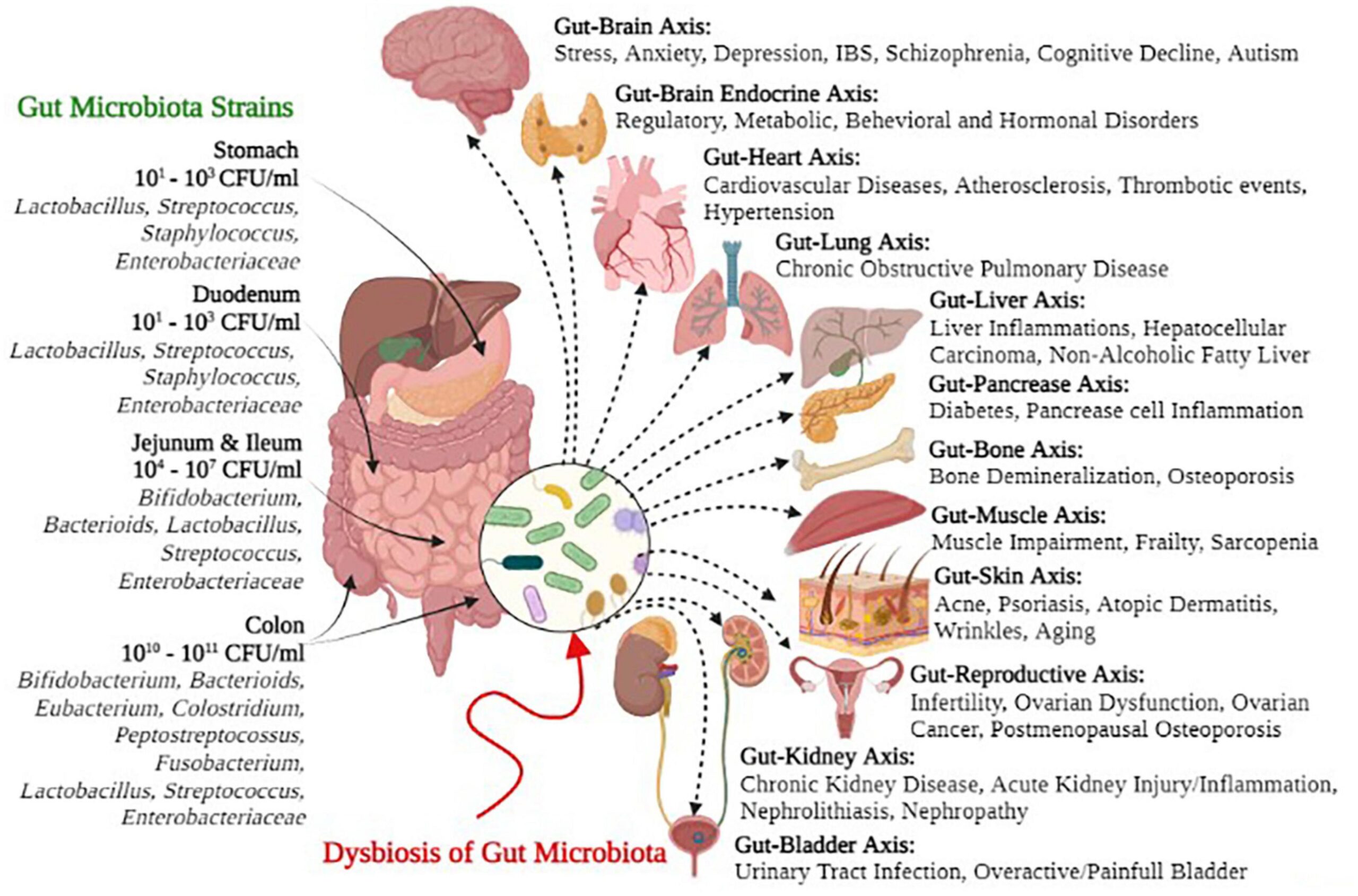Gut Health & Microbiome

Gut Health & Microbiome: Unlocking the Power of a Balanced Microbiome for Optimal Health
Introduction
The gut is often referred to as the “second brain” due to its profound influence on overall health. Behind its complex systems lies the gut microbiome—trillions of bacteria, viruses, fungi, and other microorganisms that play a critical role in digestion, immunity, and even mental health. A healthy, balanced microbiome is essential for optimal well-being, while an imbalance, known as dysbiosis, is linked to various health issues, including autoimmune diseases, digestive disorders, and even mental health conditions. Understanding and nurturing gut health is key to achieving peak physical and mental vitality.
The Microbiome: What Is It and Why Does It Matter?
The microbiome is a diverse ecosystem of microorganisms residing primarily in the gut, with billions of microbes interacting with the body to influence digestion, metabolism, and immune function. This microbial community is shaped by factors such as diet, genetics, lifestyle, and environmental exposures. A healthy microbiome is one that maintains a balanced ratio of beneficial and harmful bacteria, enabling it to efficiently perform its functions.
When this balance is disrupted, it can lead to a range of chronic conditions, including:
- Digestive Disorders – IBS, bloating, and indigestion
- Autoimmune Diseases – Such as rheumatoid arthritis and Crohn’s disease
- Mental Health Issues – Anxiety, depression, and brain fog
- Obesity and Metabolic Disorders – Insulin resistance, high blood pressure, and diabetes
The Link Between Gut Health and Overall Well-Being
Research has shown that gut health extends beyond digestion. The gut microbiome has a direct impact on:
1. Immune System Function
About 70% of the body’s immune system is housed in the gut. A balanced microbiome supports immune function, defending against pathogens, viruses, and harmful bacteria. Dysbiosis, on the other hand, can lead to chronic inflammation, weakening immune defenses and increasing susceptibility to infections and autoimmune diseases.
2. Mental Health and the Gut-Brain Connection
The gut and brain are connected through the gut-brain axis, a communication pathway involving the vagus nerve, hormones, and neurotransmitters. Research suggests that an imbalance in the gut microbiome can lead to mental health challenges such as anxiety, depression, and mood swings. The gut produces over 90% of serotonin, the neurotransmitter that regulates mood, which further emphasizes the critical link between gut health and mental well-being.
3. Digestion and Nutrient Absorption
A healthy gut microbiome aids in the breakdown of complex carbohydrates, absorption of nutrients, and production of essential vitamins like B12, K, and folate. When the microbiome is imbalanced, digestion becomes inefficient, leading to nutrient deficiencies, bloating, gas, and other digestive discomforts.
4. Weight Management and Metabolic Health
Emerging research highlights the role of the microbiome in regulating metabolism and weight. An imbalance in gut bacteria can influence fat storage, insulin sensitivity, and appetite regulation. A healthy gut microbiome may play a key role in preventing obesity, diabetes, and metabolic disorders.
Strategies to Promote a Healthy Microbiome
Maintaining a balanced gut microbiome is essential for optimal health. Here are effective strategies to support and nurture gut health:
1. Nourish with a Diverse, Fiber-Rich Diet
The gut microbiome thrives on a variety of foods, particularly those high in fiber. Fiber-rich foods such as fruits, vegetables, legumes, and whole grains feed beneficial gut bacteria, promoting their growth and activity. A diverse diet also introduces different types of fibers and polyphenols, which nourish various strains of microbes.
2. Incorporate Probiotics and Prebiotics
- Probiotics are live beneficial bacteria that add diversity to the microbiome. Common sources include fermented foods like yogurt, kefir, kimchi, sauerkraut, and kombucha.
- Prebiotics are plant-based fibers that feed the good bacteria in the gut. Foods rich in prebiotics include garlic, onions, bananas, asparagus, and leeks.
3. Limit Processed Foods and Sugar
Excessive sugar and highly processed foods can negatively affect the gut microbiome, promoting the growth of harmful bacteria and yeast. Limiting processed foods, refined sugars, and artificial sweeteners can help maintain a healthy microbiome.
4. Manage Stress
Chronic stress can lead to dysbiosis and negatively impact gut health. Practices such as yoga, meditation, deep breathing exercises, and mindfulness can help reduce stress and maintain a healthy gut-brain axis.
5. Prioritize Sleep
Adequate and restful sleep is essential for gut health. Sleep deprivation can disrupt the balance of gut bacteria, leading to increased inflammation and digestive disturbances. Aim for 7-9 hours of quality sleep each night to support gut function and overall health.
6. Stay Hydrated
Proper hydration helps maintain the mucosal lining of the gut, allowing for better digestion and nutrient absorption. Drinking sufficient water throughout the day supports the health of both the gut and the microbiome.
The Future of Gut Health and Microbiome Research
As research on the microbiome continues to grow, exciting developments are on the horizon. Innovations such as personalized microbiome testing, microbiome-based therapies, and probiotics tailored to individual needs may offer new ways to optimize gut health.
Conclusion
The gut microbiome is essential to overall health, influencing everything from digestion and immunity to mental well-being and metabolic health. By adopting a gut-friendly diet, managing stress, prioritizing sleep, and incorporating probiotics and prebiotics, individuals can unlock the full potential of their microbiome and pave the way for optimal health. Nurturing gut health is no longer just about digestive comfort—it’s about taking control of your overall well-being and unlocking your body’s full potential.




Leave a Comment